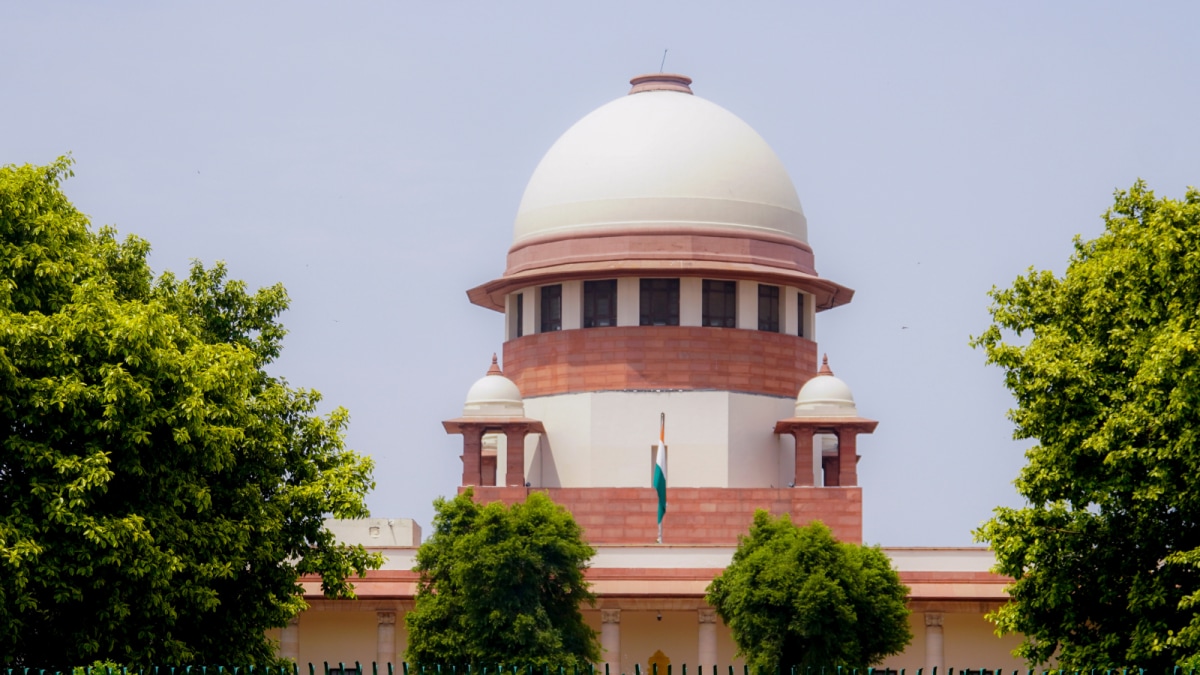Last Updated:
The Centre presented data saying from 1970 to 2025, only 20 bills were withheld out of 17,000 bills, and 90% of the them are granted assent within one month

A five-judge Constitution bench headed by CJI BR Gavai is hearing the matter about presidential reference. (Image: PTI/File)
The Supreme Court on Wednesday came down heavily on the Centre, questioning its argument that a false alarm is being raised by states when it comes to pending bills awaiting sanction by the governor.
The remarks came during the hearing on the presidential reference on whether the courts could impose timelines for governors and the President to assess bills passed by assemblies.
Recommended Stories
A five-judge Constitution bench headed by Chief Justice of India BR Gavai and comprising Justices Surya Kant, Vikram Nath, PS Narasimha and Atul S Chandurkar, is hearing the matter. Several states, represented by a battery of senior counsel, have opposed the presidential reference.
“How can you say…if bills are pending for four years before the Governor,” CJI Gavai asked solicitor general Tushar Mehta, as per a report published by Bar and Bench.
The report said Mehta responded saying from 1970 to 2025, only 20 bills were withheld out of 17,000 bills. He said 90 percent of the bills are granted assent within one month.
The counsel for the states, including senior advocates Kapil Sibal and Abhishek Manu Singhvi, objected to the data as Mehta had opposed their move to present their own.
To this, CJI Gavai was quoted: “We cannot take the data…it will not be fair to them. We will not go into it. Then we have to unnecessarily go into data…earlier you objected to their data.”
The presidential reference has questioned the April 11 judgment passed by a bench of Justices JB Pardiwala and R Mahadevan, in which the SC held that governors must act within a reasonable time and that constitutional silence could not be used to stall the democratic process.
On Tuesday (September 9), the SC said governors were expected to act within “reasonable time” even if the term “as soon as possible” were not there in Article 200 that governs powers to assent to bills passed by the state legislature.
Article 200 governs powers of governor regarding bills passed by the state legislature, allowing them to either assent to the bill, withhold assent, return the bill for reconsideration or reserve the bill for the consideration of the President.
The court is examining 14 questions referred by President Droupadi Murmu, including whether constitutional authorities can indefinitely withhold assent to bills and whether courts can impose mandatory time frames.
In May, President Murmu exercised powers under Article 143(1) to know from the apex court whether judicial orders could impose timelines for the exercise of discretion by the President while dealing with bills passed by state assemblies.
(With PTI inputs)
About the Author
The News Desk is a team of passionate editors and writers who break and analyse the most important events unfolding in India and abroad. From live updates to exclusive reports to in-depth explainers, the Desk d…Read More
The News Desk is a team of passionate editors and writers who break and analyse the most important events unfolding in India and abroad. From live updates to exclusive reports to in-depth explainers, the Desk d… Read More
September 10, 2025, 23:49 IST
Loading comments…
Read More




)